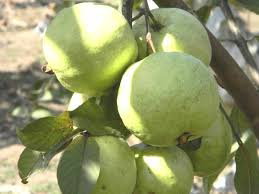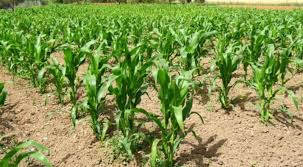Amrud farming
Amrud farming, also known as guava farming, refers to the cultivation of guava trees for commercial purposes. Guava (scientific name: Psidium guajava) is a tropical fruit tree that is widely grown in many parts of the world, particularly in tropical and subtropical regions. It is known for its delicious and nutritious fruit.
Here are some key points about guava farming:
Click on the link 🔗🖇️👇
Climate and Soil: Guava trees thrive in warm climates with temperatures ranging between 20°C to 30°C (68°F to 86°F). They require well-drained soil with a pH level between 5.5 and 7.0. Guavas can tolerate different soil types, including sandy, loamy, and clayey soils.
Varieties: There are several varieties of guava, including the common guava (Psidium guajava), Thai guava (Psidium guajava var. pomifera), and strawberry guava (Psidium littorale). Each variety has its own characteristics in terms of fruit size, taste, and disease resistance. It is important to choose the right variety based on your specific location and market demand.
Propagation: Guava trees can be propagated through seeds, stem cuttings, or grafting. Seed propagation is the most common method, but it may result in variations in fruit quality. Grafting is preferred for commercial farming as it ensures the reproduction of desirable traits.
Planting: Guava trees are usually planted during the rainy season. The recommended spacing between trees is around 6 to 8 meters (20 to 26 feet) to allow for proper growth and air circulation. Prior to planting, the land should be prepared by clearing weeds and incorporating organic matter into the soil.
Care and Maintenance: Guava trees require regular care and maintenance. This includes proper irrigation, especially during dry periods, to ensure healthy growth and fruit production. Pruning is necessary to shape the tree, remove dead or diseased branches, and promote better air circulation. Guavas are generally hardy and resistant to pests and diseases, but occasional pest control measures may be required.
Harvesting: Guava trees typically start bearing fruit within 2 to 4 years after planting. The time of fruit ripening varies depending on the variety. Guavas are usually harvested when they are mature but still firm. They continue to ripen after being picked. Care should be taken during harvesting to avoid damaging the fruit.
Marketing and Sales: Guavas are highly perishable and should be handled carefully to maintain their quality. Local markets, fruit vendors, and supermarkets are potential avenues for selling guavas. Value-added products such as guava juice, jellies, and jams can also be produced to expand the market and increase profits.
It's important to note that specific practices and recommendations for guava farming may vary depending on your geographical location and local conditions. Consulting with local agricultural experts or horticulture departments can provide you with more tailored guidance for successful guava farming in your area.
Click on the link 🔗🖇️👇




Comments
Post a Comment